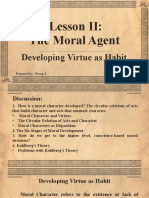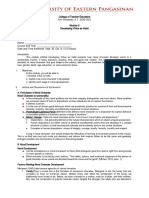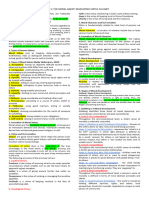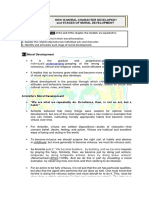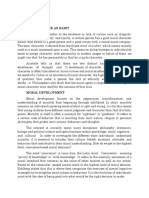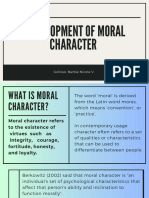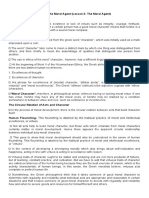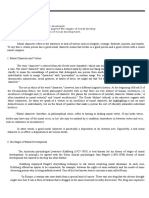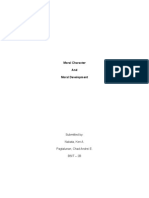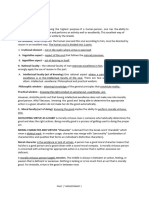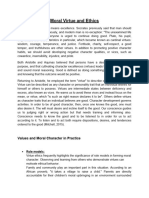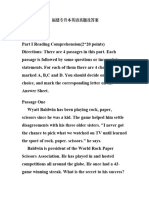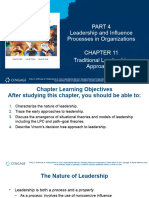0% found this document useful (0 votes)
42 views28 pagesInbound 6695251994457244244
This document outlines the development of virtue as a habit, emphasizing that virtues are positive character traits cultivated through consistent practice. It discusses the formulation of moral character, the influences on moral development, and Kohlberg's six stages of moral development. Key factors such as family, peer relationships, and socio-cultural norms are highlighted as significant in shaping moral character over time.
Uploaded by
Christian Angelo BulsicoCopyright
© © All Rights Reserved
We take content rights seriously. If you suspect this is your content, claim it here.
Available Formats
Download as PPTX, PDF, TXT or read online on Scribd
0% found this document useful (0 votes)
42 views28 pagesInbound 6695251994457244244
This document outlines the development of virtue as a habit, emphasizing that virtues are positive character traits cultivated through consistent practice. It discusses the formulation of moral character, the influences on moral development, and Kohlberg's six stages of moral development. Key factors such as family, peer relationships, and socio-cultural norms are highlighted as significant in shaping moral character over time.
Uploaded by
Christian Angelo BulsicoCopyright
© © All Rights Reserved
We take content rights seriously. If you suspect this is your content, claim it here.
Available Formats
Download as PPTX, PDF, TXT or read online on Scribd
/ 28


